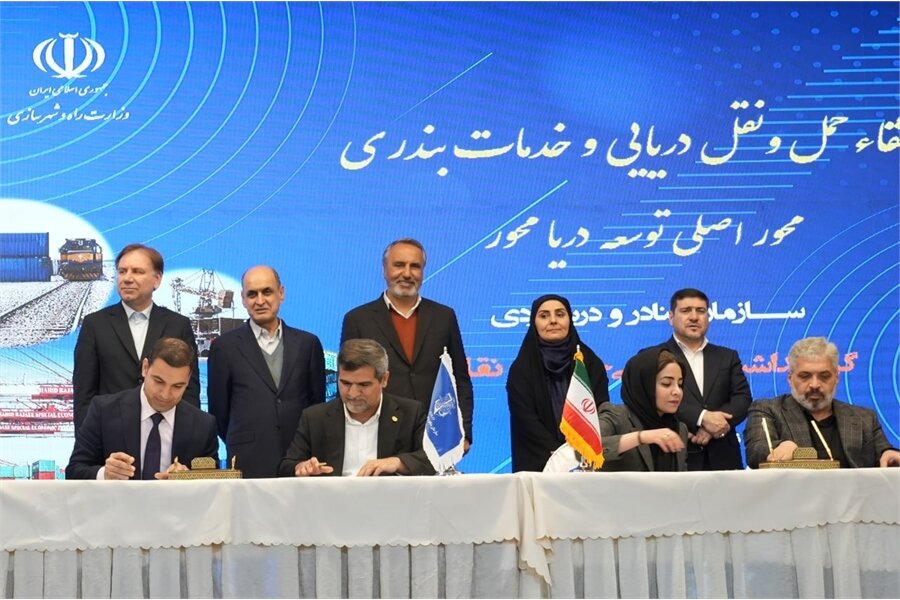Iran signs over $1.8b investment contracts with private sector for ports development

TEHRAN - Iran's Ministry of Transport and Urban Development, in collaboration with the Ports and Maritime Organization (PMO), has signed investment contracts and agreements totaling 933 trillion rials ($1.86 billion) with private sector entities to advance the country's port infrastructure and maritime services.
The agreements were finalized during a ceremony marking National Transportation Day under the theme "Advancing Maritime Transportation and Port Services: The Main Pillar of Marine-Based Development." The event was attended by Transport and Urban Development Minister Farzaneh Sadegh, PMO Head Ali Akbar Safaei, members of parliament, provincial governors, and representatives from coastal provinces, the private sector, and the maritime community.
These contracts aim to enhance maritime trade capabilities, expand port facilities, and improve services critical to Iran's broader economic objectives. The initiatives are expected to modernize infrastructure and increase private sector participation, signaling a key step toward strengthening Iran's position in regional and international maritime logistics.
Iran’s ports are pivotal to its economic development, serving as gateways for international trade and transit. The country’s strategic location, bridging major shipping routes, provides opportunities to leverage its maritime assets to facilitate both imports and exports. Officials have highlighted the importance of private sector engagement in driving innovation and ensuring sustainable development in port operations.
Recent efforts include plans to upgrade key ports such as Bandar Abbas, Chabahar, and Imam Khomeini Port, focusing on increasing cargo handling capacity, automating port systems, and reducing turnaround times for vessels. Such improvements aim to position Iranian ports as competitive hubs for regional trade, particularly in light of growing competition from neighboring countries.
In addition to infrastructure upgrades, the government has prioritized integrating ports with the country's rail and road networks to streamline logistics and boost efficiency. Enhanced connectivity is expected to lower transportation costs, attract foreign investment, and create new economic opportunities in coastal provinces.
Despite challenges posed by international sanctions, Iran is pursuing multilateral partnerships and exploring innovative financing mechanisms to sustain growth in the maritime sector. By fostering a more dynamic and investor-friendly environment, the country aims to unlock the potential of its ports and solidify its role in the global shipping landscape.
EF/MA
Leave a Comment